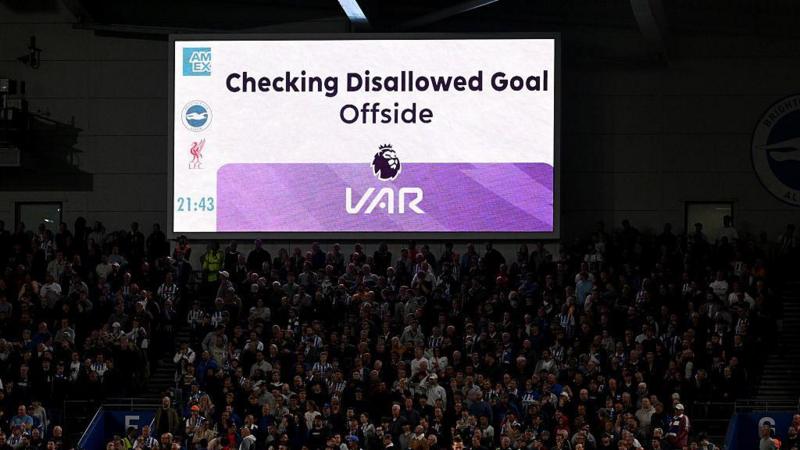FA Chief Rejects Expanding VAR Powers: Here's Why



The ongoing debate about the use of Video Assistant Referee (VAR) technology in soccer reached a new peak recently, with Football Association (FA) chief executive Mark Bullingham weighing in with his thoughts on the matter. Bullingham expressed concerns about the disruptive impact of VAR on the natural flow of the game. He firmly believes that increasing the powers of VAR could further interrupt the rhythm and excitement that makes soccer so beloved globally.
Since its introduction, VAR has been one of the most divisive topics in soccer. Implemented with the aim of providing clearer, fairer outcomes through technology, VAR reviews decisions made by the referee with the help of video footage. This technology can advise on a variety of game-changing situations including goals, penalty decisions, direct red card incidents, and cases of mistaken identity.
Bullingham's stance comes at a time when there are calls from various quarters of the sport to expand the remit of VAR to cover more aspects of the game. Proponents argue that with more responsibilities, VAR could help in reducing human errors significantly, thus leading to fairer outcomes. However, critics argue that the technology, as it stands, already causes significant delays and could, if extended, detract from the spontaneity and dynamic nature of the game.
It's important to consider the global perspective on this issue. VAR has been adopted differently across various football leagues around the world. For instance, in the Bundesliga and MLS, VAR seems to have been integrated with relatively less controversy compared to the Premier League, where its application has consistently sparked debates. Each game week throws up new incidents where VAR's involvement—or its lack thereof—stirs discussion amongst fans, players, and officials.
So, what has been the practical impact of VAR since its inception? Statistics reveal that VAR has corrected significant errors in game-defining moments, which, in theory, should uphold the spirit of fairness in competition. However, on the flip side, the system's detractors often point out the lengthy delays and the subsequent loss of momentum which can alter the psychological dynamics of a match. Players and coaches frequently express frustration over the pacing issues and the opaque decision-making process, which sometimes leaves them puzzled.
Football is a game deeply woven with emotions, and part of its appeal lies in the immediate joy or despair experienced by fans and players alike. With every pause for a VAR decision, there is a palpable tension in stadiums, often followed by a collective groan or cheer. It’s this emotional rollercoaster that Bullingham seems keen to preserve. He suggests that enhancing VAR’s powers could potentially lead to even less spontaneity, changing the nature of the sport too drastically.
As the FA Chief Executive, Bullingham’s words carry weight and reflect a significant portion of the football community that values the traditional fluidity of the game. Could there be a middle ground? It seems essential for the authorities to consider a balanced approach that respects the integrity of the sport while also embracing technological advancements that could help in minimizing glaring refereeing errors.
There is also the aspect of fan experience, both in the stadium and for viewers at home. The interruption caused by VAR does not just affect players and referees but also impacts spectators’ enjoyment and engagement with the game. As soccer continues to evolve with technology, the challenge will be to ensure that it enhances the sport without diminishing its essence.
In conclusion, while the aim of VAR to bring fairness and accuracy to soccer is widely acknowledged, its implementation and potential expansion need to be handled with care. The sport must continue to innovate without losing its soul, ensuring that technology serves the game and not the other way around. The balance between maintaining soccer's flowing nature and utilizing technology to uphold justice on the pitch is delicate, and the discourse around it, as highlighted by Bullingham, is far from over.